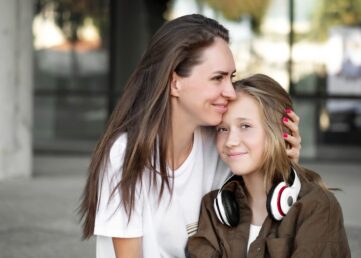Emotional Regulation Strategies for Children and Young People

One in five children in the UK have emotional and behavioural problems, which often emerge in children as young as six years old meaning that it’s important to implement emotional regulation strategies early on.
Emotional and behavioural problems in children have been closely linked with difficulties in regulating emotions. Emotions are normal and are an integral part of human nature and therefore relationships.
As children grow up, each day they face different emotionally stimulating situations that require emotional response.
Why are emotional regulation strategies important from a young age in supporting children’s mental health?
- Learn to ground themselves when they experience overwhelming emotions.
- Build confidence and positive self-image.
- Cope and thrive in relationships.
- Develop resilience to cope with challenging situations and thrive academically.
So, learning emotional regulation skills during childhood can better equip children to manage stress and navigate interpersonal relationships later in life.
Understanding and encouraging children to develop emotional regulation strategies can help support their mental well-being.
So, how can we help them?
Therapeutic interventions
Imagine a scenario where a child is overwhelmed by feelings of anger or anxiety, unable to express themselves constructively. Many families face this situation, and it can be difficult to know what to do to help.
Cognitive Behaviour Therapy (CBT) is a science-backed therapy that helps children to recognise emotions and physiological reactions and identify thought patterns.
CBT teaches children to:
Recognise and label their emotions accurately. By increasing emotional awareness, young people can better understand the underlying reasons for their feelings and respond to them more effectively.
Identify triggers or situations that provoke intense emotions. By understanding the relationship between triggers and emotional responses, young people can anticipate and prepare for challenging situations.
Identify unhelpful thought patterns that occur during an overwhelming situation and develop alternative perspective of the situation. This enables them to respond to situations more adaptively and make better choices.
Practice Mindfulness techniques to stay focused in the present and observe thoughts and emotions without judgement. Mindfulness practices can promote emotional awareness and reduce reactivity.
Express their emotions in healthy ways, such as talking to a trusted adult, journaling or engaging in creative expression like drawing or painting. By acknowledging and validating their feelings, young people can prevent emotional suppression and build resilience.
Problem-solve the underlying issues contributing to their emotions. By breaking down the problem into smaller, manageable steps and brainstorming potential solutions, young people learn to approach challenges proactively and assertively.
Consistency and practice
Self-regulation skills give children the ability to guide their behaviour towards what they want to achieve, even when things around them are unpredictable and they’re feeling all kinds of emotions. However, children are not going to immediately understand this process, so the key to helping them is to encourage them to practise self-regulation strategies at every opportunity. This consistent practice will eventually become a habit, meaning their automatic response will be one of self-regulation, which will help protect their mental health during childhood and as they grow older.
Therapeutic interventions not only equip children with emotional regulation strategies but also help parents support their children’s mental health journey. Through knowledge and understanding, families can develop healthy communication patterns and strengthen familial bonds, which creates a supportive environment that is conducive for emotional regulation.
Onebright offers remote therapy services for children, including CBT, with accredited therapists. Contact the team by filling out the form below.



